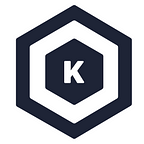Codex ICO Review: Can Asset Registry be Blockchained?
Codex is trying to create a decentralized registry for unique assets like art, fine wines, watches and more. This is a billion dollar industry and if these assets can be tokenized and if their ownership can be stored in an immutable and verifiable blockchain, then the potential is huge.
Trustlessness in the ecosystem is sought to be created through CodexCoin (CODX) which will align economic incentives/disincentives in a way that all stakeholders behave in a fair manner rationally.
Codex has some of the biggest names in VC backing it: Bessemer Venture Partners, Pantera, FJ Labs etc. The core Codex team looks solid as well which include ex-HBS, ex-Microsoft, ex-Google, ex-Private Equity among others.
However, are these factors enough to trust the project? To be neutral, let’s look at some of the massive challenges that would be faced by Codex given that
i) It is dealing with non-fungible assets using a fungible token,
ii) It is trying to solve the oracle problem,
iii) It has partnered with companies which are dealing with fractional ownership of tokenized physical assets.
Non-Fungible Unique Assets
Applications built on top of Ethereum Network based on non-fungible tokens are still under-explored as compared to huge number of fungible token based ICOs that we’ve seen over the last couple of years.
Non-fungibility means that different tokens can have different values because of their unique features, whereas fungibility means token has monetary properties in the sense that 1 USD will always be 1 USD, similarly 1 fungible token will always be worth 1 token.
CryptoKitties was a great example of non-fungible token application where different digital cats can have different worth. But at the same time, its traffic was enough to clog the whole network.
With this learning in hindsight now, it seems raising money through ICO is not the best route if the original motive was to build a running application on top of Ethereum network.
Tokenizing Physical Assets
There is another challenging area where the true potential of blockchain technology is still under-explored. This area is — going away from digital native assets and trying to digitize physical assets with the benefits of immutability, transparency, fractional ownership and direct transfer without intermediaries — properties often associated with blockchain technology.
Why this is a bigger challenge is because of the oracle problem and limited scope of smart contracts because trusted intermediaries will still be needed in this case.
Let’s say your land property has been tokenized. Now if you own the token, it represents your ownership of the land which was tokenized and can be verified using a public ledger/blockchain. But then say, someone hacks your account and steals your token. How would you define the ownership of the land now? Unlike a digital token, land is a physical asset. So, its ownership cannot be assumed to be so easily transfered if there is dispute. Will it still belong to the original owner or the hacker? Justifiably, the judiciary of the nation to which the lands belongs will have to come into picture. But if judiciary is involved, what is the use of smart contracts and tokenization of land ownership. This creates an oracle problem.
Another situation — if a land owner who has tokenized his land ownership decides to transfer partial ownership of land through sale of corresponding share of his tokens to a person from “some other nation”. Can this deal be considered done without the stamp of the local government? Probably not.
Independent Oracle Problem
According to Codex, Codex Record will be the ledger of truth in terms of asset registry which could include art, fine wines, watches etc.
If there are two competing entities for the authenticity of a rare art, how will Codex have the skills to decide which one represents the truth. Bringing the physical into the digital world inevitably brings trusting on a third party (which in this case would be Codex). This compromises with trustlessness, one of the core tenets of blockchain.
Although Augur seems to have shown a way to solve the oracle problem through designing a crypto-economic incentive structure which promotes truth and penalized false information, it is driven by community. It is to be seen how Codex goes about solving this problem.
Overall, while the asset registry sector has massive potential, and with a strong team backed by big VCs, Codex looks to have a decent chance of solving this problem, however there is a lot of skepticism when it comes to the enormous challenges that comes with moving away from fungible digital native assets.
Disclaimer: This should not be taken as an investment advice. Please do your own research before investing.
